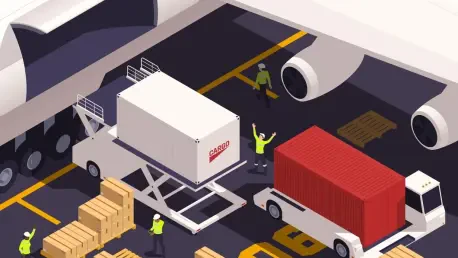Today, we’re thrilled to sit down with Rohit Laila, a seasoned veteran in the logistics industry with decades of experience in supply chain and delivery. Rohit’s passion for technology and innovation has positioned him as a thought leader in transforming the air cargo sector. In this conversation, we dive into the exciting integration of cutting-edge booking technology with global pricing platforms, the impact on user experience in air cargo management, the role of automation in streamlining operations, and the future of AI-driven solutions in logistics.
How did the idea of integrating CargoAi’s technology with Descartes’ global pricing platform come about, and what does this partnership aim to achieve?
The integration stemmed from a shared vision to address inefficiencies in the air cargo booking process. Both companies recognized the need for a seamless, tech-driven solution that could simplify complex workflows. By combining CargoAi’s Quote & Book API with Descartes’ Global Price Management solution, the goal is to create a unified platform where users can access real-time data and book shipments effortlessly. It’s all about making the process smarter and more efficient for logistics professionals.
Can you walk us through how CargoAi’s technology enhances the capabilities of Descartes’ pricing solution?
Absolutely. CargoAi’s API brings live rates, schedules, and capacity information from over 105 airlines directly into Descartes’ system. This means users can search, compare, and book air cargo without toggling between multiple platforms. It’s a game-changer because it centralizes critical data, reduces manual input, and speeds up decision-making. The integration ensures that pricing and booking are not just aligned but also dynamic and responsive to real-time market conditions.
In what ways does this integration make the booking process faster and more flexible for air cargo companies?
Speed comes from automation and accessibility. Users can instantly pull up rates and schedules, compare options, and confirm bookings without delays caused by manual processes or outdated data. Flexibility is enhanced because the system allows for quick adjustments—whether it’s a last-minute change in capacity or finding alternative routes. It empowers companies to respond to market demands or client needs on the fly, which is critical in a fast-paced industry like air cargo.
How does this partnership improve the overall user experience for logistics professionals?
It simplifies everything. Imagine having a one-stop shop where you can see live data from over 100 airlines, compare options, and book directly—all within a few clicks. It eliminates the frustration of navigating multiple systems or waiting for quotes. The transparency of real-time information also builds trust, as users know they’re making decisions based on the most current rates and availability. It’s about reducing complexity and letting professionals focus on strategy rather than logistics grunt work.
What specific operational challenges does this integration help address for air cargo businesses?
One of the biggest challenges is the labor-intensive nature of booking and pricing. Traditionally, companies spend hours manually sourcing rates, confirming schedules, and coordinating bookings. This integration automates those tasks, cutting down on operational stress. It also minimizes errors that come from manual data entry. By streamlining these processes, businesses can allocate their resources to higher-value activities like customer service or optimizing supply chains.
Can you elaborate on how tools like FlyWindow add value to the freight booking process through this collaboration?
FlyWindow is a fantastic addition because it enhances visibility and control. It allows users to see detailed flight options and capacity constraints in real time, which is crucial for planning. When integrated into Descartes’ platform, it provides transport professionals with a more granular level of insight, enabling them to make informed choices quickly. It’s like having a magnifying glass on the booking process—every detail is clear, and decisions become more precise.
Both companies are also exploring AI innovations. How is Descartes leveraging AI to tackle issues like trade compliance in logistics?
Descartes has been focusing on AI to solve pain points like shipment delays caused by trade compliance errors. Their Visual Compliance AI Assist, for instance, automatically reviews and clears false positives in compliance screenings. This is huge because false positives can halt shipments unnecessarily, costing time and money. By using AI to filter out these errors, the system ensures smoother operations and keeps goods moving without unnecessary holdups.
CargoAi has introduced an AI assistant as well. How does this tool fit into the broader picture of air cargo management?
CargoAi’s AI assistant acts as a virtual support system for users, helping with tasks like data analysis, query resolution, and even suggesting optimal booking strategies. It complements the integration with Descartes by adding another layer of intelligence to the platform. For example, while the core system handles booking and pricing, the AI assistant can provide insights or recommendations based on historical data or market trends, making the user’s job even easier.
Looking ahead, how do you envision technology integrations like this shaping the future of the air cargo industry?
I believe we’re just at the beginning of a major transformation. Integrations like this will become the norm as the industry pushes for greater efficiency and transparency. We’ll likely see more partnerships that combine different technologies—think IoT for tracking, blockchain for security, and even deeper AI applications for predictive analytics. The future is about creating ecosystems where data flows seamlessly across platforms, enabling real-time decision-making on a global scale.
What is your forecast for the role of AI in air cargo logistics over the next decade?
I’m incredibly optimistic about AI’s potential. Over the next ten years, I expect AI to evolve from a supportive tool to a core driver of logistics operations. We’ll see it handling everything from predictive demand forecasting to automated route optimization and even conflict resolution in supply chains. The key will be integrating AI with other technologies to create a fully connected, intelligent network that anticipates challenges before they arise. It’s going to redefine how we think about efficiency in air cargo.









